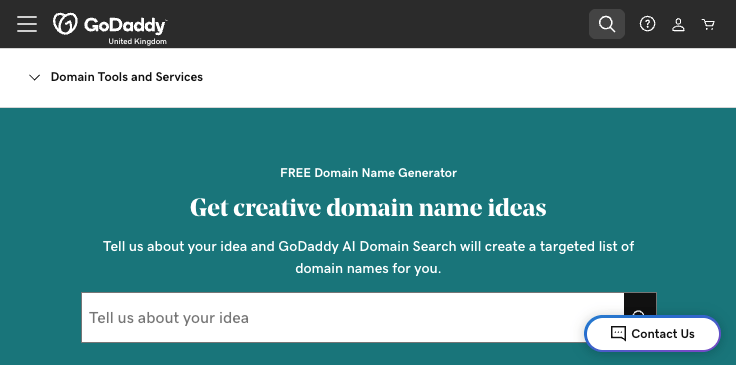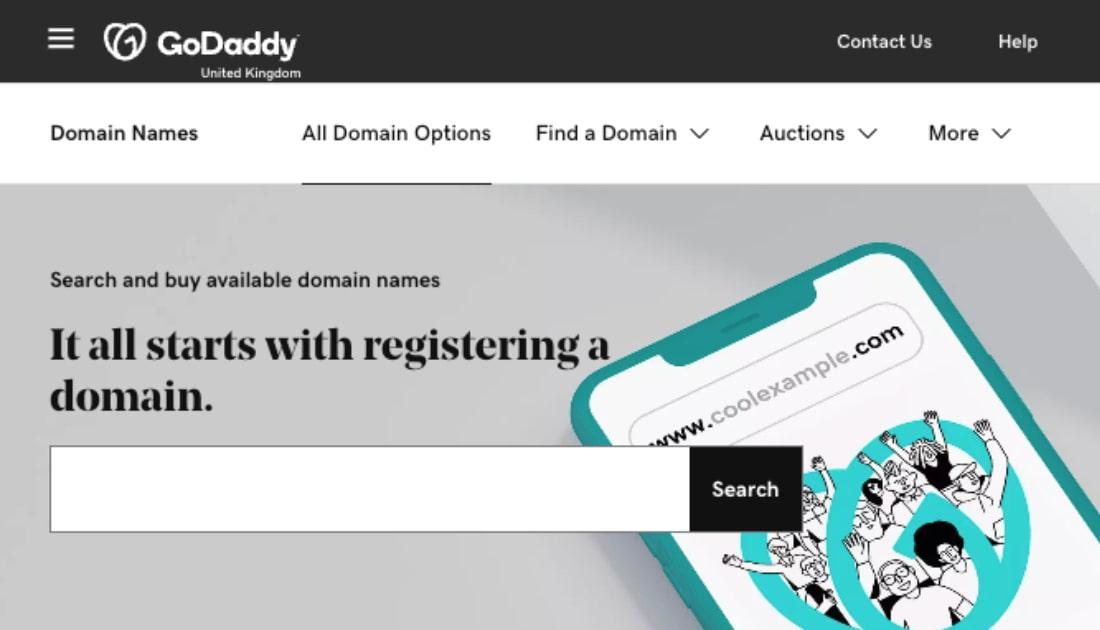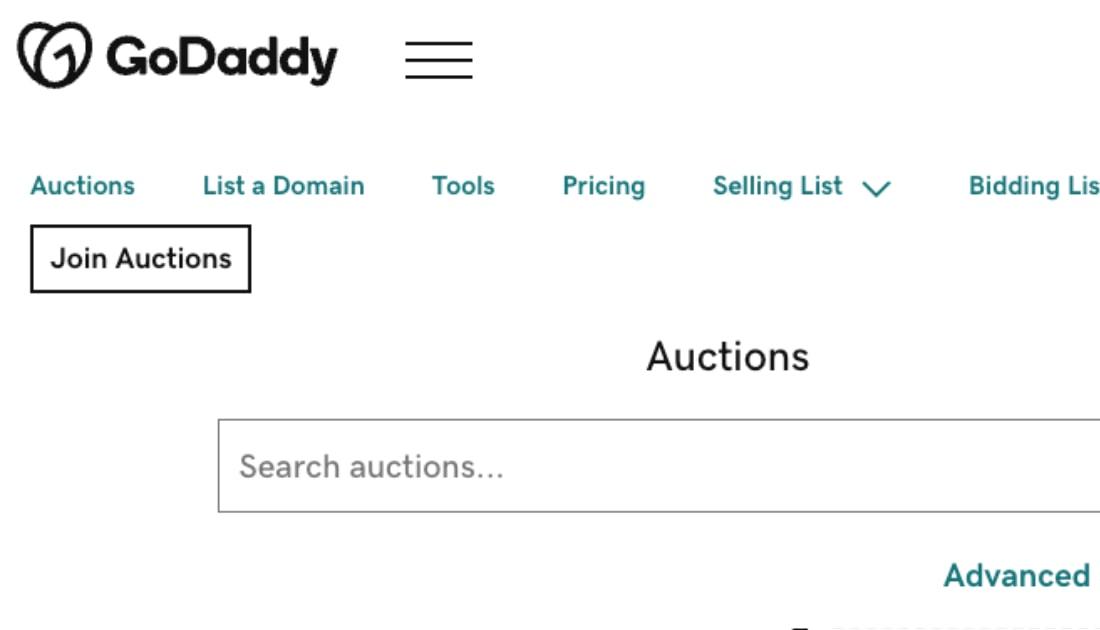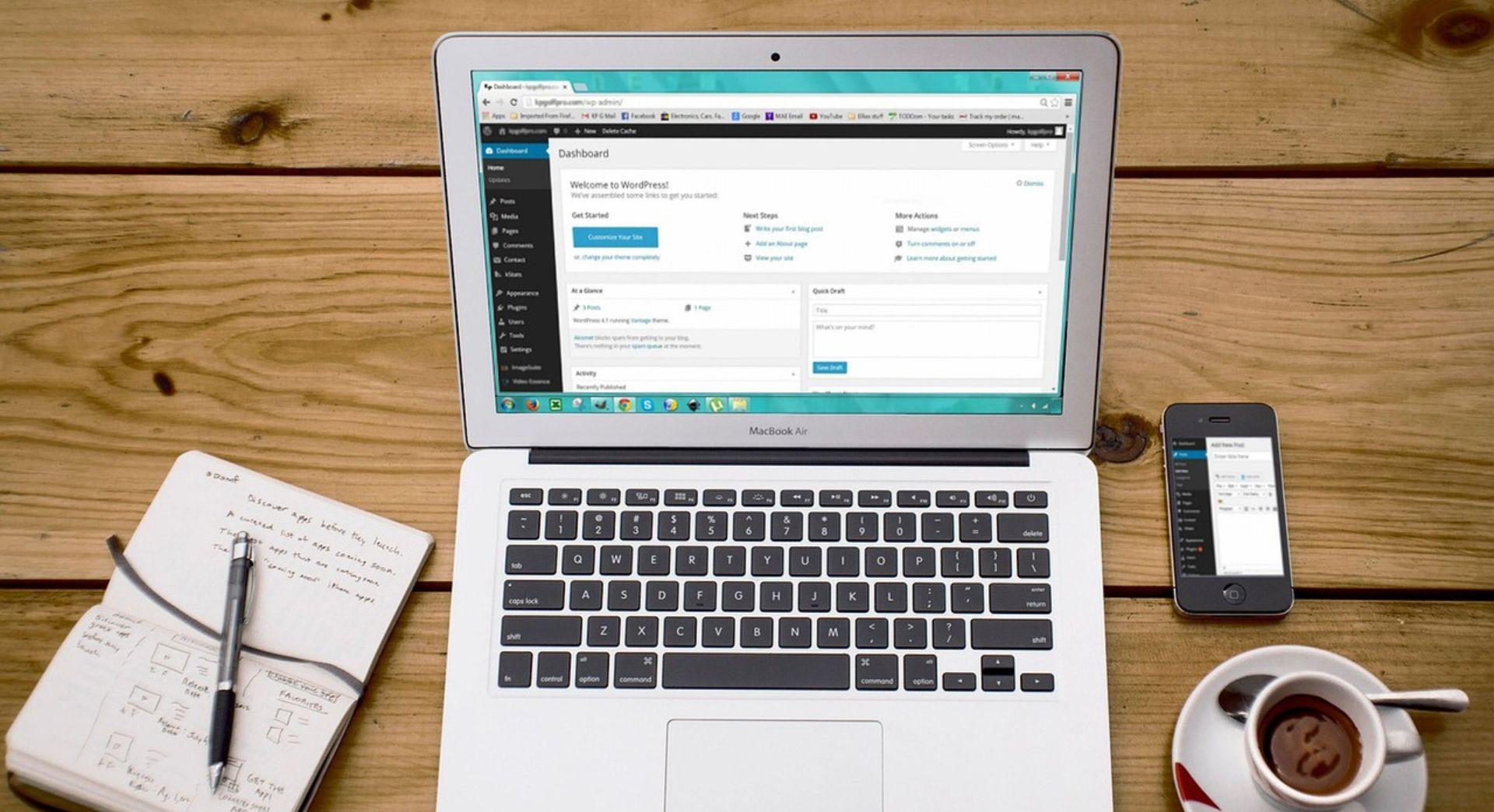So you’ve got a business idea and you’re ready to bring it to life, but wait…
What do you call it?
And where can you look for business name ideas?
Choosing a brand name for your venture is a huge responsibility. After all, if it succeeds, you’re going to be stuck with your business name idea for life (unless you undertake a costly rebrand, that is).
Your company name will appear on billboards and flyers, and in the upper left corner of your business website.

There’s a lot riding on getting your brand name right.
Imagine how the owners of IT Scrap felt when they realised that, when written as a domain name, their company title could be read in an entirely different way – itscrap.com.
Don’t let this happen to you.
In this guide, we’ll walk you through 12 ideas for naming your business, step by step, to help you land on a brand name that’s just right, flaw-free and ready to stand the test of time.
Where to start with naming a new business
There are three routes you can go down when it comes to naming your new business.
Employ a branding agency
Branding agencies exist to create brand names for businesses and products. They do market research, look into trends, carry out trademark checks, consider your target audience and more – all to develop a unique business name that ties in with your values.
The main downside to this route is that it can be pricey, especially if you want the agency to carry on to develop a fuller brand identity.
Yes, brand agencies work within set budgets, but it’s still an expense. If you’re starting out as a small business or launching a startup you might not have the finances to spare.
Use an online business name generator
There are a few free online tools out there that can help you develop a creative business name. You simply type a word in, and the business name generator will come up with some brand names linked to that word.
Some of these free business name generator sites are a little more ‘out there’ than others.
For example, we entered the word “Coffee” into BusinessNameGenerators.com and it returned the following ideas:
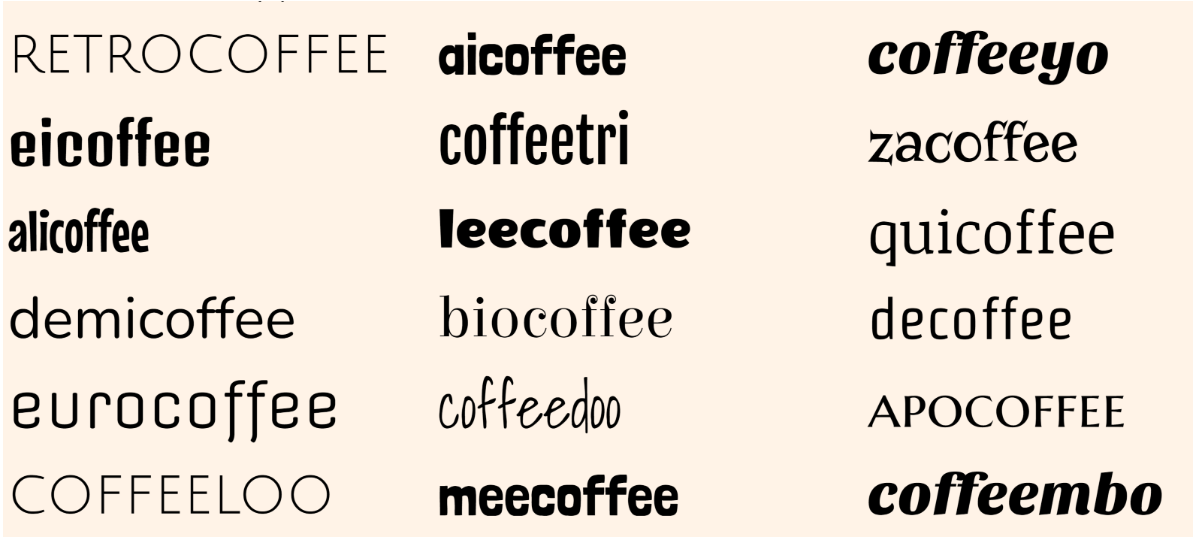
Is anyone really going to name their business Coffeeloo? All the same, these brand name generator tools can be helpful when used as part of a more structured brainstorming process, like the one we outline below.
Brainstorm your way to a great business name
Clear a day to sit down to do some serious brainstorming. This is where you jot down every business name idea you have, without judgement.
To make it easier, try one of the 10 ways to name a business listed below.
Pro tip Don’t let this task overrun. Set yourself a deadline for finishing up, or you’ll start procrastinating.
Naming idea 1: Use your own name
Using your own name in a business title is a particularly great option if you’re offering a skill, art or craft as part of your business. It adds the personal touch and indicates quality.
This shows you’re proud enough of what you offer to put your name to it.
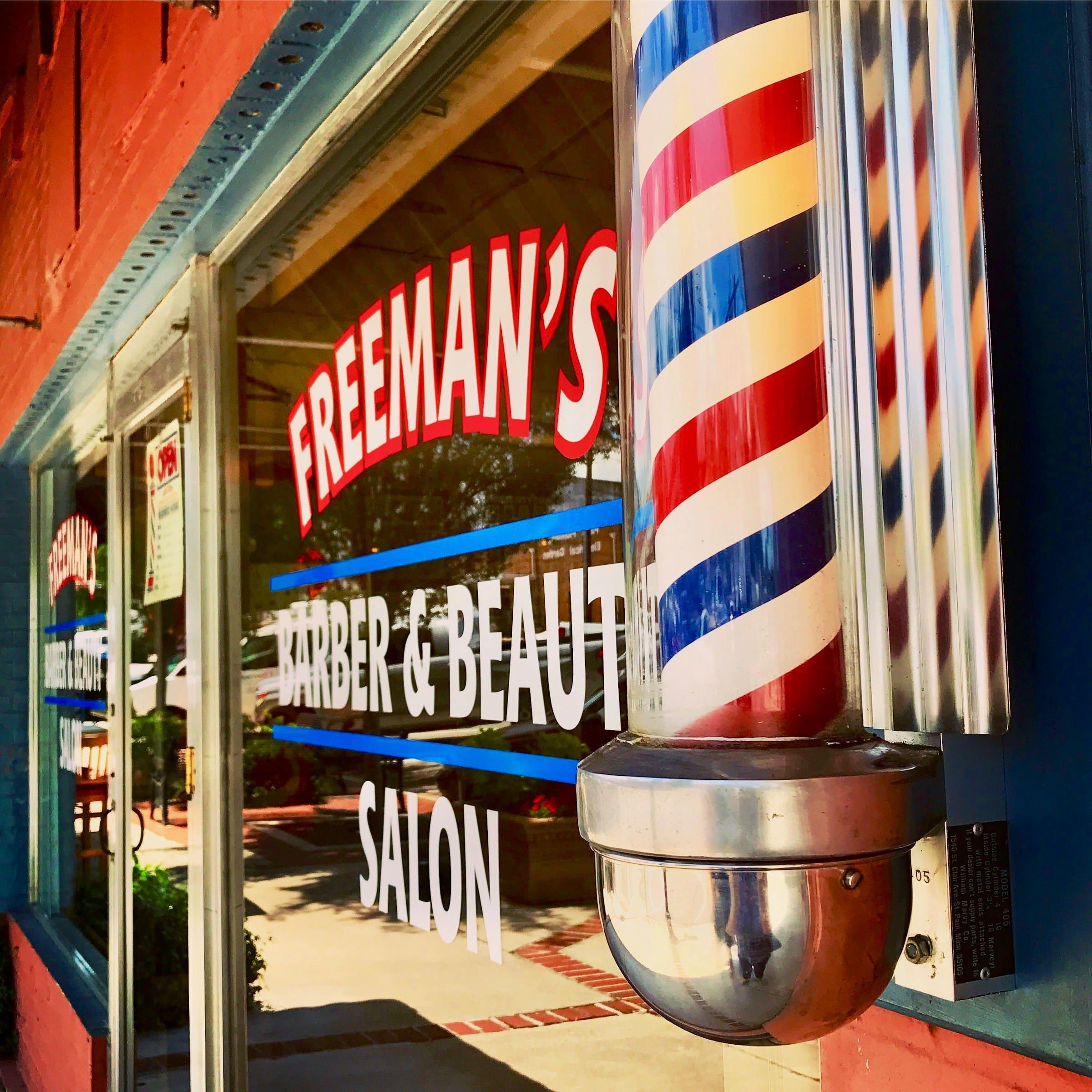
Florists, hairdressers, plumbers, beauticians, personal trainers and artists commonly use their own names for their businesses.
If this is the route you want to go down, think about whether you want to use your first name, second name, both names or your initials as part of your business name.
Here’s a fictional example of the many ways you could use your name in a business title:
- Lilly Rose Hair
- LR Hair
- LRH
- Lilly’s Hair
- Lilly Rose Hobbs Hair
- Hair by Lilly
Editor’s note: Every business needs a website, and every website needs a domain name. Use GoDaddy’s free Domain name generator to check domain name availability. This will serve as your website address and email.
Naming idea 2: Acronyms
Acronyms crop up in the idea above, but here we ask you to consider them in a broader sense for your new business name.
An acronym is made up of the first letters of each word in a name or phrase.
For example, IBM is an acronym for International Business Machines.
Try this exercise to curate your own acronym:
- Write down in three words or less what your business does.
- Then take the first letters of each of those words to develop a business name.
Here’s an example of that exercise done for a fictional gardening company:
Landscaping, gardening, grounds-maintenance = LGG
Or you can be a bit more playful to develop some more creative business name ideas. Here’s an example for a fictional web design company:
- We build websites - WBW
Some famous companies that use acronyms in their company names include:
- BBC – British Broadcasting Corporation
- BMW – Bayerische Motoren Werke
- NASA - National Aeronautics and Space Administration
Naming idea 3: Use a pun
Hairdressers seem to be especially good at coming up with catchy business name ideas that harness puns.
Here are a few examples:
- Mane Attraction
- Hair Force One
- Dye Pretty
- Shear Lock Combs
- Snip Tease
There are a couple of online resources that can help you brainstorm puns for your business name options:
The Free Dictionary – on this website you can enter words linked to your business (like hair, snip, cut etc) into the ‘Idiom finder’ and it will return a list of idioms related to that word. Let these idioms inspire you.
Rhyme Zone – this website will help you find words that rhyme with your words.

Naming idea 4: Use a random word
Some of the world’s most famous companies have seemingly random words for names.
Think Apple, Google and Amazon.
The benefit of choosing a random name is that it gives your business room to expand, pivot and grow.
Apple started out selling microcomputers and diverged into phones. If it had called itself a name with the word ‘computing’ in it, the company would have outgrown it by now.
If you’re drawing a blank on random words, just open the dictionary and select a word at random and see where it leads you.
Alternatively, let a site like Random Word Generator make up a word for you. The Fake Words section of this site comes up with completely new words for you like Upling, Iamst, Dizoolexa and Quift.
Naming idea 5: Get sentimental
Some business owners choose to name their companies after their children or even a treasured pet, from past or present.
The bespoke hamper design service Jo + Co Hampers & Floral Design, for example, is named after the owner’s two young sons.

You could even include a nod to a beloved home town in your business name. Like IKEA founder Ingvar Kamprad whose hometown, Elmtaryd Agunnaryd, inspired the EA in the company name.
Of course, this approach isn’t for everyone. Some entrepreneurs like to keep their private and professional lives strictly separate.
Naming idea 6: Make a hybrid name
A hybrid name is one that’s made by combining two elements together. Famous examples include:
- Netflix, which is made from the words internet and flicks (meaning films)
- Evernote, which is a combination of forever and note
- Shopify, which combines the word shop and the word ending ‘ify’, which implies development and improvement
To come up with a hybrid name yourself, make a list of words linked to your business.
Think of words that describe your services, products and the way customers access them.
Create a word cloud of these words, either on a sheet of paper or using an online word cloud generator. Then play around with pairing them together.

Don’t forget to experiment with snipping words in half and joining them up, as with Netflix and Evernote above.
Naming idea 7: Use the Ronseal approach
Ironically, the name Ronseal doesn’t seem to mean much. However, the brand is known for explaining clearly and concisely what its products do on its packaging.
For example, its product range includes Decking Stain, Metal Paint and Interior Varnish.
You might want to play around with this approach to get the right name for your own business.
For example, The Shoreditch Yoga Teacher, The Derbyshire Plumber and so on.
These names have the added benefit of containing geographic keywords. Assuming you are able to register the matching domain name — ShoreditchYogaTeacher.co.uk for example — it could help your website’s search ranking. This means you’re more likely to show up in local searches for your goods or services.
Speaking of which, keeping your business name self-explanatory is also good for the business website you will build.
Naming idea 8: Use a symbolic name
A great example of a company that uses a symbolic name is the sportswear company Nike, which is named after the Greek goddess for victory.
Using the name of this goddess as a company name is aspirational, making an immediately powerful first impression. It symbolises everything Nike customers are striving for when they buy the company’s products.
To explore a symbolic name for your venture, think about the goals and dreams of your customers.
For example, clients go to hairdressers seeking beauty, they turn to gardeners to develop serene green spaces, they buy hampers to be generous.
As an example, let’s take these three goals and look into the names of mythical characters.
- For beauty, we find Aphrodite and Venus.
- For serenity, there’s Eirene.
- For generosity, consider Demeter.
In addition to researching myths and legends, you could think about other elements that symbolise your business.
Think about:
Materials -- for example, the word steel is often used in gym names.
Animals that may symbolise your product -- for example, Jaguar symbolises the power, speed and grace of the car.
Any colours that could represent what you do and your planned value proposition -- the obvious example here is green for an eco-business.
Naming idea 9: Use a word from a different language
This works especially well for services and products that actually have their roots in other countries and cultures.
For example, yoga teachers often choose a Sanskrit word for their business name. Restaurant owners regularly use words of the country their food originates from as part of their business name.
The food chain Itsu’s name means ‘When?’ in Japanese.
You might not realise it, but some major global brands have Latin names. The word Volvo comes from the Latin word for ‘To roll,’ for example.
Of course, you have to be careful when using a word from another language to develop your unique business name ideas. Firstly, you need to be 100% sure you’ve translated that word correctly. History is littered with foreign business names that are offensive to native speakers.
Secondly, you need to be sure people from the UK or your target market will be able to remember it. If your brand name is not in their first language, they may struggle to recall it.
Naming idea 10: Let your company outcomes guide you
How do you want your customers to feel once they have bought your product or service?

- Energised?
- Ready to take on the world?
- Relaxed?
- In control?
- Ready for fun?
- Eager for adventure?
- Self-confident?
- Relieved?
- Indulged?
- Like they’ve just bagged a bargain?
Make a list of all the outcomes you’d expect for your clients in an ideal world and brainstorm words associated with these outcomes. Then see if any of these words could fit into a company name.
Still in need of inspiration?
Take a look at the creative ways a few big companies came up with their business names.
Reebok
The name of this American sportswear company was inspired by an agile African antelope known for its speed, the Rhebok. They just tweaked the name a little.
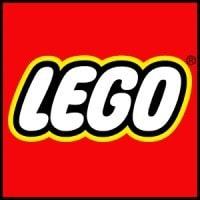
Lego
The name of this Danish company comes from the words Leg Got, which means play well.
WD-40
According to their business website, WD-40 stands for water displacement perfected on the 40th try.
Virgin
Richard Branson reportedly came up with his company name because he was new to business, or a business virgin.
Reportedly, the name Google comes from the term googol, which is the mathematical term for the number 1 followed by 100 zeros.

Etsy
This company name was said to have been inspired by the Italian phrase et si, which means oh, yes. Founder Rob Kalin told Reader’s Digest that he had been watching the Italian film 8 ½ when he came up with the name.
Lancome
The story goes that the founder of beauty brand Lancome took the name from a French chateaux he once visited.
A few final checks
Before you set your business name in stone, it’s worth asking these five final questions.
Is your business name readable and pronounceable?
This is especially important to double-check if you’ve created a hybrid word or an acronym. Readability should always take priority over uniqueness.
Say your name out loud to see how it sounds.
Then take a break and focus on another task for a few moments. See if the name still makes sense when you come back to it with fresh eyes.
Is it memorable?
If your name is a hybrid, uses words from a foreign language, contains jargon, or is overly long, it may be hard for people to remember.
To put the memorability of your company name to the test, tell it to a friend or relative and see if they can remember it 24 hours later.
Top tip: Adding a little alliteration to your company name can make it more memorable because it injects a sense of rythmn. Alliteration is the repetition of similar sounds in a business name - for example Suzie’s Shoes.
Does it have global appeal?
Small businesses start small, but most company owners have big ambitions, especially if they’re developing an online store or ecommerce site that has the potential to be seen by the world. Ask yourself if your company name will still make sense if you want to market it to a global audience.
Is it evergreen?
An evergreen business name is one that won’t become outdated. Ask yourself if any element of your business name has the potential to age and become off-trend.
Do other people like it?
After hours of brainstorming a business name, it’s easy to lose objectivity. So, you’ll need to go out and get opinions about your business name idea.
Ask friends, family or your social media followers -- or even enlist a market research company like Survey Monkey, to help you find out what the wider world thinks of your business name idea.
Once you’ve landed on a business name idea
This part of the process will move a bit more quickly.
Step 1: Check for trademarks
Once you’ve shortlisted your company name, the next step is to make sure that it’s not already trademarked by someone else.
To do this, just visit this government website and enter your business name idea to see if it has been trademarked by someone else.
As an example, here’s the response you get if you search for McDonald’s:
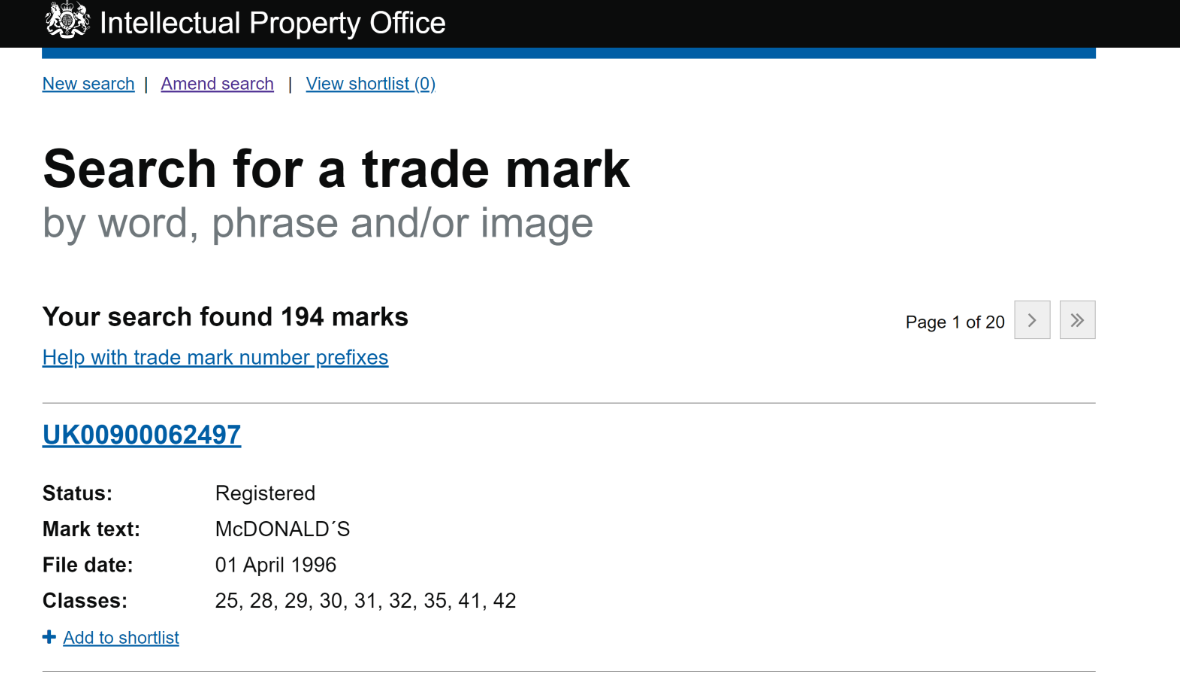
Step 2: Register your domain name
As soon as you’re sure about what your business name will be, you’ll want to get a domain name. You will use this for your website address and business email.
Find the perfect domain name now:
As an example, we searched for the fictional hairdresser’s name we mentioned above:
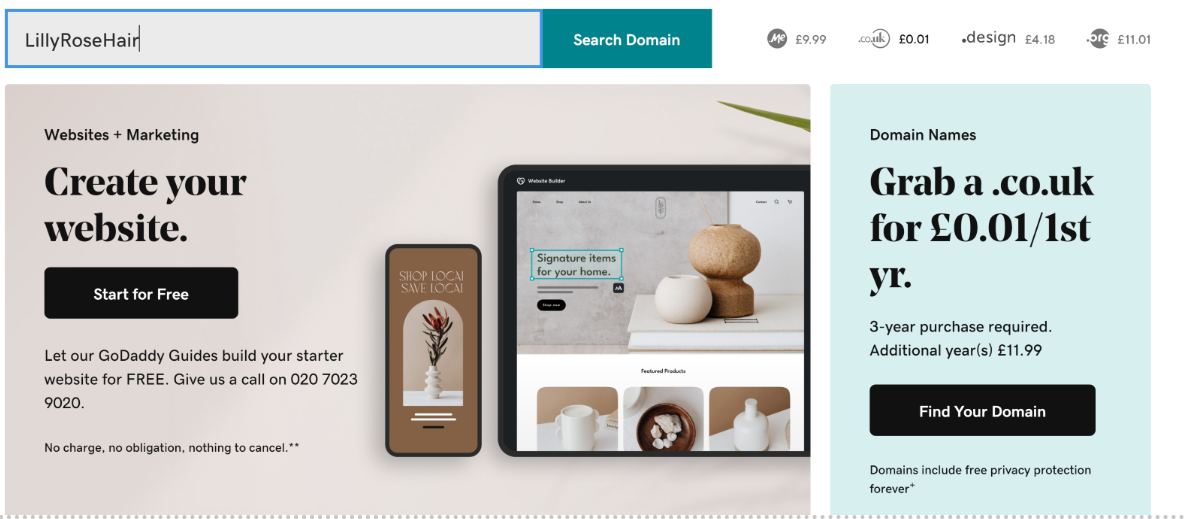
The result? We found two perfect domain name matches:
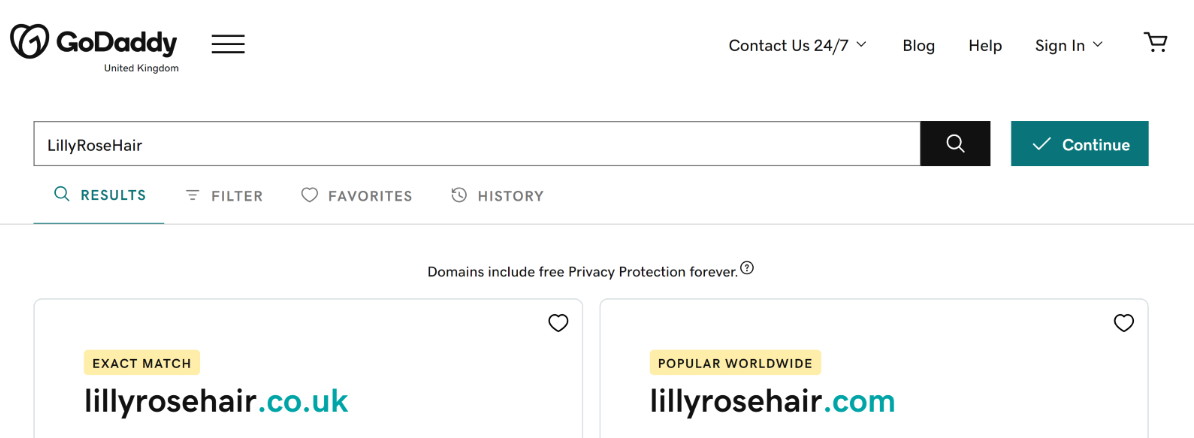
Use these ideas to name your business
Before you can make your first million, you’ll need to name your business. You need something:
- Memorable and easy to spell
- That won’t be misunderstood or mispronounced by potential customers
- That hasn’t been trademarked by anyone
- That is available as a domain name
- That you won’t mind saying over and over
Because of course you’re going to succeed. So take your time naming your baby. The perfect name is out there!
Business naming ideas: FAQs
Still have questions about naming a business? The answers may be here.
What techniques can can I use for developing a good business name?
There are lots of ways to develop company name ideas. Utilise a free company name generator, hire a branding agency, brainstorm using your own name, symbolism, hybrid words and more.
What if my ideal domain is taken?
Occasionally, the domain name that perfectly matches your business name will already be taken by someone else.
Don’t worry, there will be other domain availability.
The domain name search results will display the closest match to your desired name as possible. This match may use an ending that’s different to .co.uk or .com. There are hundreds of alternatives out there, from .biz to .lol so keep an open mind.
You might even find that an alternative to a .co.uk or .com fits your business even better. Using our Lilly Rose Hair example again, the owner of this business could have bought lillyrose.hair.
If you really have your heart set on a taken domain name and don’t want to settle for anything else, you can try and buy it from the owner through a Domain Broker service.
With this service, you pay an up-front fee and a broker contacts the owner of your desired domain and tries to negotiate a sale. If successful, the broker will take a small commission from the sale, but the domain will be all yours.
Now comes the question of how many domain names you need.
If you’re strapped for cash, you can start with just one.
However, buying extra domain names can help you protect your brand from copycats and cybercriminals.
Buying extra domain names can also help you diversify your business. For example, if you sell subscriptions or VIP services, you can buy yourbusinessname.club.
Owning a portfolio of names can be a real asset for your business.



